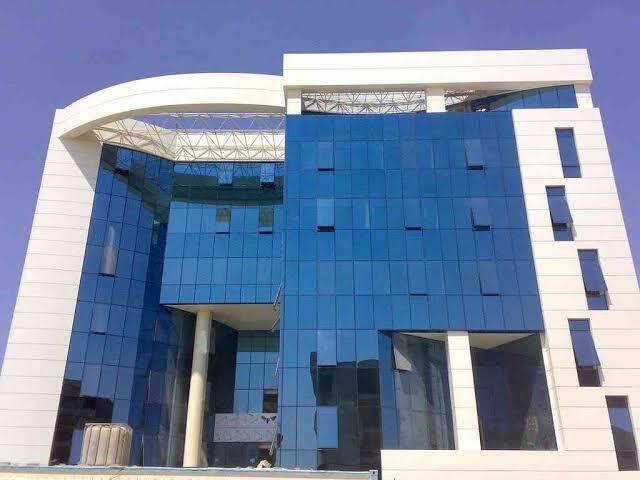
Planting tree for every sold Bernhard H. Mayer’s eco-friendly OMNI Watch
Bernhard H. Mayer, QNET’s esteemed luxury brand, has pledged to plant a tree for every ...

Chairman of the Board of Trustees of the Giza Systems Education Foundation (GSCEF) Shehab el Nawawi said Egypt’s Project of Nitrous – which aims at using digital fabrication technology to address the unique day-to-day needs of Persons with Disabilities (PwDs) – will expand its activities to various governorates, including Fayyoum, to get the largest number of handicapped people to benefit from the program in line with the United Nations Sustainable Development Goals 2030.
He made the remarks during a ceremony held by the GSCEF at the end of the first stage of Project Nitrous which took two years to be implemented. The winners of the 2019 Project Nitrous Competition were also honored during the ceremony.
Tareq Salem won the first position in the 2019 contest for launching an e-platform for disabled persons to reach the nearest digital lab for printing assistive tools that would beneficial for them in their daily life.
Ahmed Sabri – who became a member of Project Nitrous – is among the winners and the Project Nitrous is cooperating with him to empower him financially and train him to be able to start his project which aims at manufacturing educational models for blind people to be used by schools for people of special needs.
The GSCEF launched Project Nitrous in 2018 with an aim to support disabled people in the Egyptian community. The GSCEF partnered with Switzerland’s Drosos Foundation to help people suffering visual and movement impairment through using digital manufacturing technology, especially 3-D printing technology to manufacture tools that would help them face their daily life challenges.
Under the project, Drosos Foundation and Giza Systems Education Foundation (GSEF) have cooperated with E-Nable, Etba3ly, and the Enactus Cairo University ‘Sa3ed’ team. Based entirely on volunteering efforts, the teams had managed to already design and produce a number of assistive devices to address this dire need in the Egyptian community. To capitalize on the various milestones already achieved by E-Nable, Etba3ly, and ‘Sa3ed’, GSEF approached them to collaborate, and share the knowledge and experiences they had accumulated. By pooling their collective know-how, Nitrous aims to build a viable commercial model that would allow for the sustainability of the activity.
Under the slogan “Innovation that changes lives,” the Project Nitrous aims to utilize digital technologies to enable the disabled by creating assistive devices and empowering them to revolutionize the products they use to make them highly customizable to suit their individual needs.
The project will also involve them in product design and learning digital fabrication skills to promote them actively joining the workforce and becoming entrepreneurs.
The project has so far manufactured up to 90 assistive tools in a year and half in addition to training about 26 of the beneficiaries of the project in seven governorates in order to be able to use technology to solve their daily life problems.
The project also gets disabled persons to attend training sessions and participate in job forums and educational gathering for handicapped people.
The project also finances projects of the winners in the annual Project Nitrous Competition to establish their own projects.
Applying the massive potential of digital fabrication to assistive technologies substantially opens up the possibilities for the world of persons with disabilities. Prosthetics, customized wheelchairs, bionic eye devices, sonic gadgets, joysticks, cups, utensils, and so many other tools can be created and customized based on their individual needs.
The name of the pilot, “Nitrous,” was derived from the concept of nitrous oxide used in car racing. It is tantamount to injecting nitrous into a car engine, which allows for a higher level of oxygen available during combustion, to increase the engine’s power and performance. The name epitomizes the amazing contribution and collaboration of e-Nable, Etba3ly and Sa3ed in coming together and joining forces with Giza Systems Education Foundation to ultimately boost and fast-track the performance of the 3D printed prosthetics initiative for the entire community.
Bernhard H. Mayer, QNET’s esteemed luxury brand, has pledged to plant a tree for every ...
The fifth annual summit of Startups Without Borders, which will take place on May 10-11 ...
The United Nations Development Program (UNDP) and the British University in Egypt (BUE) signed a ...


اترك تعليقا